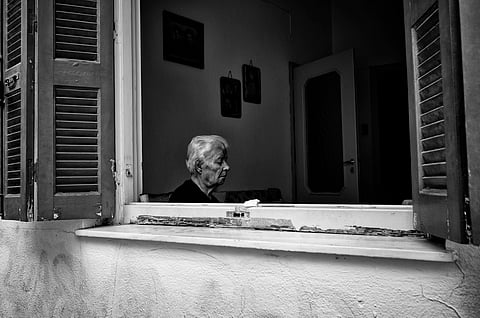Photo: Spyros Papaspyropoulos / Flickr
My Ma always said that the best way to make kaane meen curry, what-they-say-in-English lady fish curry, is to add half a raw mango, cut into little squares. "Small squares, ya," she'd say to me, "something like half an inch by half an inch, the size of these earrings I'm wearing, o, you see?" I'd see. I didn't need to, they were the same green ones she'd worn since Pa had died, the ones he didn't like.
"You're not seeing ya, Renu."
"Yah, no, I see, Ma."
"Just look properly once, otherwise then you'll say I didn't show you."

